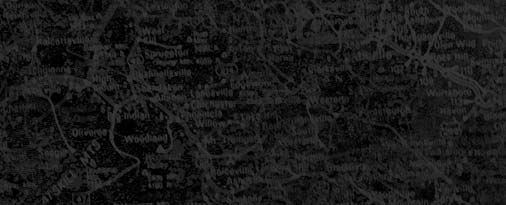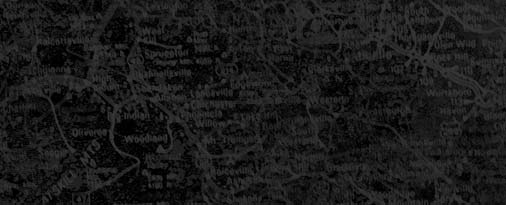Bone Key
Authors: Keith R.A. DeCandido




™
Keith R.A. DeCandido
Based on the hit CW series SUPERNATURAL
created by Eric Kripke
Dedicated to Michael McCloud—thanks for all the fine entertainment at the Schooner’s Wharf and elsewhere during my many trips to Key West.
Key West, Florida, is my home
And you know I never ever want to roam
Where the ladies are lovely, and drinking
is my favorite sport
(Well,
second
favorite . . .)
I’d rather be here
Just drinking a beer
Than be freezing my ass in the north
—Michael McCloud
“The Conch Republic Song”
Contents
ix
The chief priest sat in the canoe as the boy…
1
The demons gathered.
5
This is the best way to celebrate Christmas and
New…
8
“Happy New Year, boys!”
20
Angela O’Shea hadn’t always wanted to kill the
tourists.
33
Sam watched the setting sun paint the sky over
the…
47
Mitchell had kept telling his wife Krysta that
Key…
61
It was rare that Dean Winchester found himself at a…
72
Jorge smiled at the look of glee on his brother… 89
David Madleigh had never been so scared in his life.
94
Tom Tracy was really hoping to get lucky. 109
“Anyone ever told you that you got the most
amazing…
118
“No points for originality,” Sam muttered, as they got out…
136
The couple had been perfectly willing to follow
Azazel.
161
“You have got to be freakin’ kidding me!”
172
When Dean turned left onto South Street from Duval,
he…
190
Sam really hated being possessed.
204
Dean sat not-very-patiently on the hood of the Impala,
currently…
212
Sam had fought many battles over the years, earned
many…
231
…he had been saying “today is the day”
for
years…
241
The Last Calusa remembered.
254
Sam was fairly winded by the time they made it… 272
285
Other Books by Keith R.A. DeCandido
This novel takes place a week after the third-season episode
A Very Supernatural Christmas
.

Two hundred years ago . . .
The chief priest sat in the canoe as the boy rowed to the sacred island.
The Calusa had constructed the island themselves, amidst the many natural islands that trailed off the home peninsula. Like their homes and their tools, the island was built from the shells that the water gave them. The water also gave them food and transportation.
Now the sacred island was one of the few refuges left. Once, it had been the place where warriors gathered and where their efforts were planned and blessed by the Three Gods.
There were times that the chief priest wondered if the Three Gods had forsaken them. He did not hold such blasphemy for long. But as he watched 2 SUPERNATURAL
the leader, his only son, wither away, covered in the pockmarks that the outsiders had brought to them, it was hard not to at least consider that the Three Gods had forsaken them, that the Calusa were no longer worthy of the gods’ gifts.
His son would be dead soon. Even if the outsiders’ diseases did not take him, as they had the war chief, then the Creek or the Yamasee would. Once, such lesser tribes feared the mighty Calusa. Then the outsiders came. They, too, feared the Calusa, who rejected their trinkets and their single god. But the Creek and the Yamasee were weak, so they accepted the outsiders’ gifts—including their weapons. The Calusa were once feared in part because of their weapons made with the shells provided by the water, but the metal shells of the outsiders were mightier than the shells of the sea.
Between the raids and the sickness, the Calusa were ravaged. They could no longer protect their friends, such as the Seminoles and the Tequesta, and they could no longer defeat their enemies. The chief priest knew that soon they would all be dead. Perhaps within two seasons. So he needed to prepare, as he and the other priests had decided.
“We are here,” the boy said. The chief priest looked up, having fallen into a reverie and not realized that they had arrived. Bone
K
3
ey
“Come,” the chief priest said, slowly rising to his feet on old bones that creaked and cracked. The boy helped the chief priest steady himself as they disembarked, then he retrieved the large gourds containing the items that the chief priest had requested he bring with him.
When they were on the hard land of the sacred island, the boy said, “Tell me what I must do.”
“The shadow soul and the reflection soul are of no use to us,” the chief priest said. “They are given to the animals of the land and sea to live new lives. But the eye soul remains, and it is that which we must harness.” The chief priest put a hand on the boy’s chest. “We give our lives today so that one day the Calusa may have their revenge.”
Standing proud, the boy said, “I would rather die in the service of the Calusa than wither away from the outsiders’ sickness.”
With a smile, the chief priest added, “Or be bloodied by the outsiders’ weapons?” Before the boy could protest, the chief priest reassured him.
“It does not matter. Your courage is already wellknown to us all. It is why the Three Gods chose you. And it is why, when our people are gone, you and I shall remain behind to bind the eye souls of our people together.”
Nodding, the boy said, “I am ready.”
First, the boy took out the masks. Calusa masks covered the entire face with painted wood, with 4 SUPERNATURAL
holes only for the eyes, to keep that soul unfettered. For the priest, the mask was blue, white, and red, with an open mouth rendered to symbolize his conversations with the Three Gods. As for the boy, his mask was red, black, and white, and portrayed the fierceness of a warrior born.
The chief priest removed the three daggers from the gourd, handing one to the boy and holding the other two in his hands. Then he began the dance and the chant to the gods. The boy followed along, mirroring the chief priest’s movements. After they had completed three circles, the chief priest sliced open his left wrist with the dagger in his right hand, then reached out and did the same to the boy’s left hand.
At a nod from the chief priest, he and the boy both then lunged for each other. The dagger in the priest’s right hand plunged into the boy’s chest even as the boy’s dagger plunged into the priest’s. The chief priest felt the life blood drain from him, and he knew that the Three Gods had
not
forsaken him, for if they had, they would not have provided him with the means of avenging the Calusa upon the world.
When the time was right . . .

Six months ago . . .
The demons gathered.
Azazel had told them that it would be happening soon. Not everyone believed Azazel, of course. For all his power, he was still a demon, and demons lied—no one knew that better than the demons themselves. And even if he wasn’t lying, not all the hellspawn were convinced that the old bastard would be able to pull it off.
Some thought the plan too convoluted—corrupting a whole bunch of children and having them compete with each other to see who would be most worthy to lead Azazel’s army.
Some just didn’t like the plan, especially since it called for them being led by a human. Yes, it was a human handpicked (and handcrafted, in many 6 SUPERNATURAL
ways) by Azazel, but still a human. Most demons had long since lost whatever connection to humanity they once had, and those who had some dim recollection of their time on the mortal plane before they were sent to hell didn’t exactly look back on that time with fondness.
But many believed in Azazel. They were willing to put their faith in him if it meant
getting
out.
They were willing to subvert their wills to a human if it meant
getting out.
They would stand here at the edge of the gate, waiting, waiting,
wait-
ing,
as long as it meant
getting the hell out.
The gate had been put there by a human who was probably the most hated of that species among demonkind: Samuel Colt. A hunter who’d constructed a pistol that could kill demons—not just send them back to hell, which was certainly bad enough, but actually
end
them—and who’d constructed the Devil’s Gate that kept the pathway between Earth and hell closed, forcing demons to more subtle means of entering the mortal plane. Most demons were too lazy, too incompetent, or too stupid to contrive subtle means of escape. Or they simply didn’t want to deal with the
agita
of having to follow the exact terms of the spell that summoned them, limited by the power of the human who cast the summoning.